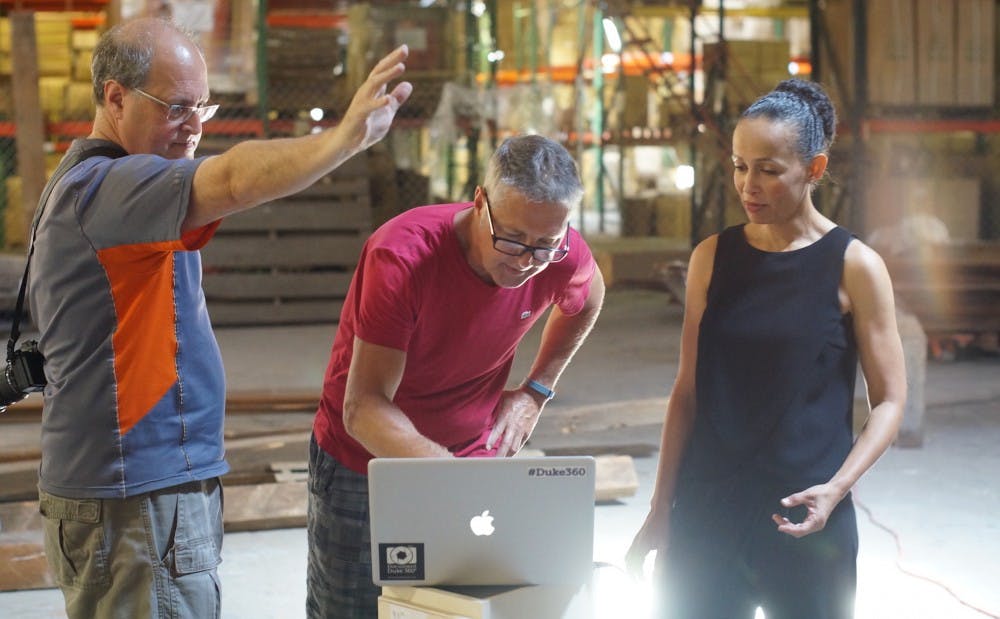Anne-Maria Makhulu did not always plan to become an associate professor of anthropology and African American studies. Originally from the U.K., she began training as a ballerina when she was just four years old, like many girls do.
“Perhaps what was a little unusual was that I continued,” Makhulu said. “People started dropping out at a certain point, and I just carried on.”
After her family moved to Geneva, Makhulu began to think more seriously about becoming a professional ballerina. When she was 12 years old, Makhulu faced the first critical moment in her training as a dancer as her family decided to move to Botswana. Her ballet teacher in Geneva suggested she audition for a full-time ballet conservatory under the U.K.’s Royal Ballet company. However, her mother was concerned about leaving her daughter alone in the U.K., so Makhulu ended up following her family to Botswana.
“We had to cobble together some ballet classes for me as best we could” Makhulu said.
While in Botswana, her family managed to find a South African ballet teacher who crossed the border every Friday to give Makhulu lessons over the weekend. She also tried out new genres including jazz and traditional dances of different countries. Without the institutional support that a ballet school would have provided her, Makhulu missed crucial years of intense training between ages 12 and 16.
When she turned 16, she finally joined a ballet boarding school in the U.K. But she experienced several difficulties, including training with her peers who joined the school as young as 8 years old and being one of the few students of color. Makhulu recalled that she began to realize some limitations that she would face while training to become a ballerina in the U.K. Discrimination based on students’ skin color was so deeply entrenched into the ballet school’s system that everyone considered it normal.
“Somehow it was acceptable to say that different human beings had different body types and therefore black bodies or bodies of color were not suitable for classical dance,” Makhulu said. “It was really quite shocking, but we all sort of went along with it, because that was what people said.”
Makhulu eventually decided to move to the United States to fulfill her dream as an aspiring dancer and received a scholarship to the Alvin Ailey American Dance Center, a school attached to one of the first dance groups for dancers of color.
“It was new to me that this was a possibility and also quite liberating, because the shocking thing about the world of dance, and particularly classical ballet, is that it continues to be quite slow to integrate,” Makhulu said.
However, in her mid-20s, she decided to give up her career as a dancer and enroll at Columbia University as an undergraduate.
“I danced as long as I could,” she said. “[But] if you want to have a career in dance, you have to be more than great. You have to be amazing.”
She had to give up her childhood dream of becoming a ballerina. But studying at Columbia enabled her to discover the parallel between dance and intellectual life, especially because both required self-control.
“The way I was trained as a dancer … involved a great deal of discipline, self-consciousness…and relationships to rhythm and other bodies,” Makhulu said. “Intellectual life actually takes a great deal of discipline too. You spend an enormous amount of time reading, re-reading, writing … and revising in order to get to the place where you are able to say something that may be important or insightful.”
Wanting to major in social sciences like her mother, who studied politics, philosophy and economics, she explored different subjects, including psychology, political science and sociology. Eventually, she chose anthropology.
“I figured out that anthropology was the place where I felt most at home, and [the subject] made the most sense to me as someone who had lived all over the world,” Makhulu said. “Anthropology … is most interested in and most committed to the social sciences of cultural differences.”
Makhulu found South Africa particularly appealing for her anthropological studies due to her father, who had to leave the country in the early 1960s because of its political situation and who later ran an underground railroad to help other South Africans escape. Makhulu’s family could not go to South Africa throughout her childhood. But interacting with those who left the country and activists helping South Africans in exile or refugee camps impacted Makhulu, especially when she lived in Botswana. She was also fortunate to be a part of the first groups of anthropologists to visit the country after the end of Apartheid.
“The fact that I started earning my doctoral degree at the time when South Africa was undergoing a political transition and it timed out in such a way that I was a part of the very first generation of anthropologists who were able to go back to South Africa because it was now safe to go and do research, made it an obvious choice to me,” she said.
While continuing her career as an anthropologist with interests in areas including South African literature, neoliberalism and globalization, she stays physically active, just like she was when she was a dancer, running marathons and trying cross-fit.
“When I go running long enough, ... I start to have really good ideas about my work,” she said. “I have to live a life that is both physical and mental."
Get The Chronicle straight to your inbox
Sign up for our weekly newsletter. Cancel at any time.

